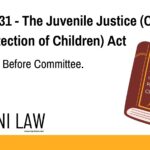Introduction
The Madras High Court has directed the Inspector General of Registration to stop the registration of societies that include caste-based identities aim to perpetuate caste in Tamil Nadu. The court emphasized that such societies violate constitutional values and threaten societal harmony.
Case Background:
The ruling came during a batch of petitions filed by various societies concerning their internal elections. While reviewing these petitions, the court observed that some societies were promoting caste-based identities, which contradicted the Tamil Nadu Societies Registration Act and constitutional morality.
Petitioner’s Stance:
Initially, the state government agreed that caste-based restrictions violated legal principles. However, it later requested the court not to go beyond the scope of the petitions. The Registrar of Societies passed orders on the original prayers during the case, making them infructuous.
Court’s Ruling:
Justice Bharatha Chakravarthy held that societies must not be registered with caste names or be formed with the goal of perpetuating caste. The court said schools and colleges run by such societies must remove caste names from their titles, directly or indirectly, within four weeks. If they fail, the institutions will be derecognized, and students will be transferred to other recognized schools.
This applies not only to societies but also to educational institutions run by individuals and trusts.
The court also instructed the State government to remove caste-based prefixes or suffixes (e.g., Kallar Reclamation, Adi-Dravidar Welfare) from school and hostel names. Government institutions must be renamed simply based on their location. If a donor’s name is retained, any caste reference must be removed.
Final Verdict:
The court warned that allowing caste-based identities in school names leads to division, enmity, and even violence among children. It emphasized that promoting caste breaches the fraternity of the country.
Societies are now required to:
Change their names by removing caste references.
Amend their goals to avoid caste perpetuation.
Modify membership rules to allow open entry.
Only after completing these steps can societies approach the court for further relief.
The court set a deadline to complete the process within the academic year 2025–2026. Failing that, students must be moved to other schools in 2026–2027. The judgment reinforces constitutional values and aims to build an inclusive educational environment.








